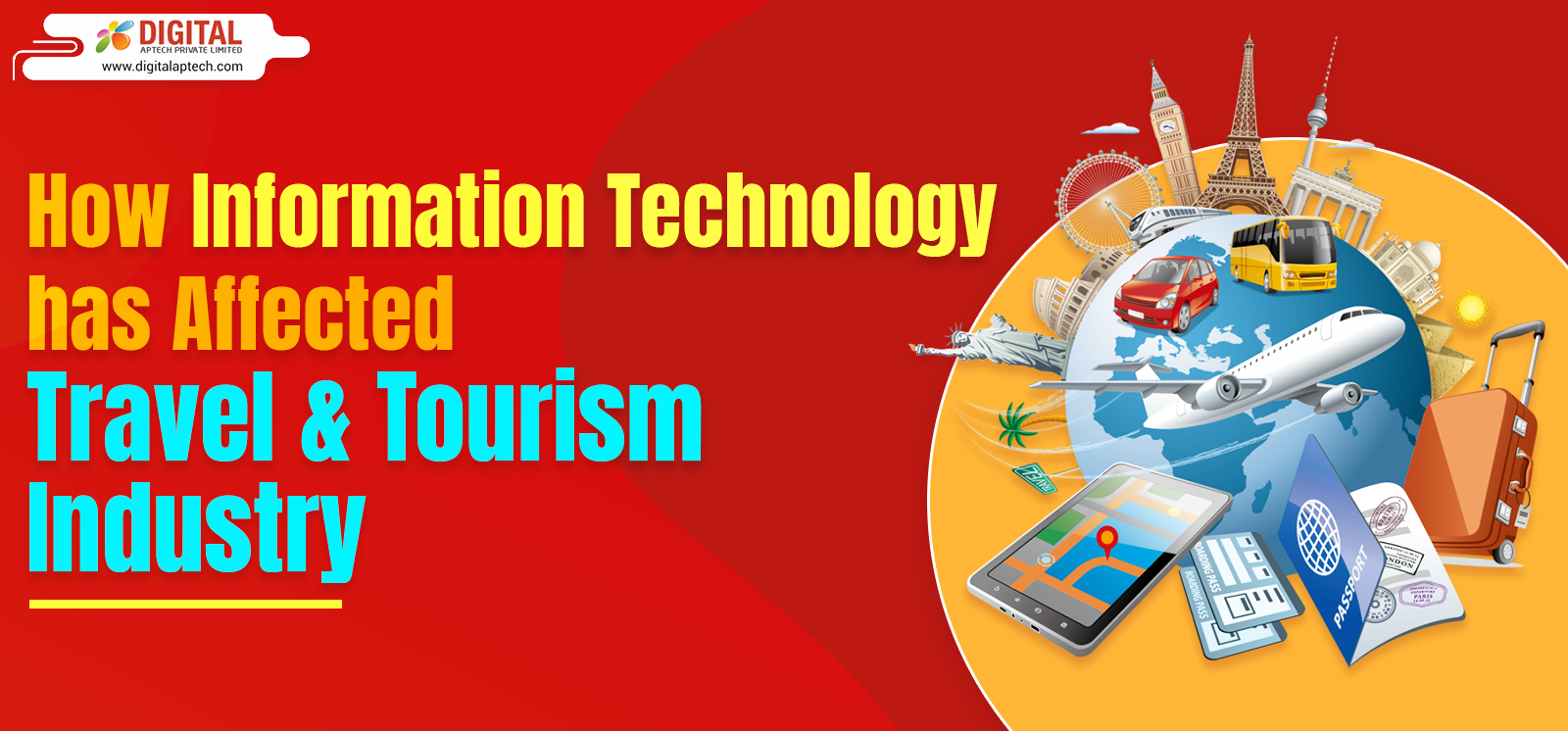As per a Google Travel study, 74% of travelers make their travel plans using the Internet while a mere 13% approach travel agencies to do it. Millennial are mainly responsible for this paradigm shift as they love everything about emerging new technology and they love to travel too! Travel apps, social media, travel blogs and other digital channels have become integral parts of the travel and tourism industry rather than remaining as technical entities. Little wonder that web development and app development companies are closely working with travel houses to generate greater ROI.
Let’s a take a look at how technology and tourism are fast emerging as winning partners benefiting all stakeholders in them!
Mobile technology, Wi-Fi & Automated Booking
<p,>Undoubtedly, it all starts with smartphones and travel apps that have turned into deft travel guides offering all options for travel, stay and dinning with location maps and so much more. A TripAdvisor data reveals that 45% people make use of smartphones for making their vacation plans and related activities. Hotels and guests can interact with each other freely even when they’re on opposite sides of the globe, collect reservation receipts and make payments. Also, the process of online cancellation is only a click away when it becomes necessary.
All of this is possible due to extensive use of Wi-Fi networks, travel and reservation apps that enables seamless connectivity. Following the trend, KLM offers information service to passengers on their Facebook Messenger while several others are using WhatsApp to do the same. Travelers can receive their boarding passes and flight updates on these platforms keeping them well informed round-the-clock.
Social Media Marketing
The time period between January of 2018 and 2019 saw a in social media users by a staggering 288 million! Travel related companies, hospitality industry and related sellers are making a beeline to advertise their offers across social media platforms. This is among the best ways to engage prospective travelers to concretize their plans through links to websites that display products and services. Tech-savvy generation that is also travel-hungry fall hook, bait and sinker for all that is easily laid out to them through the internet!
Web development companies play a crucial role on behalf of businesses related to the travel and tourism companies to attract this teeming crowd and convert them into concrete paying guests and travelers.
Augmented Reality aided Immersive Experiences
Augmented Reality (AR) technology allows the tourism industry to bring home real-life-like experiences of interesting places to customers. Hotels, resorts and related businesses are offering enhanced physical environments in 3D to give life-like view of rooms, local places of interest and much more. From showcasing cabins on cruise ships to giving a kayaking experience across the Grand Canyon, you can enjoy it all with Augmented Reality aided immersive experiences. It’s much like teleporting oneself to the actual site from any place on the globe 24/7!
Geographic Information System (GIS)
GIS stores and analyzes data gathered on travel patterns in a map form for a particular area. GIS maps are useful for travelers who wish to have a clear picture of the itinerary of landmarks they wish to visit. It is much like having your personalized Google Map based on your travel plans that let you move freely without confusion or dependence. GIS apps are a great help to people traveling by themselves in foreign lands and without having to face language barriers. Travel apps using GIS help travelers using complex transportation systems in unknown terrains with their latest traffic updates and scheduled services.
Virtual Assistants
Virtual Assistants like Alexa and Siri are already helping people across the world to get updates on current weather, read mails or turn on the radio. Making use of the technology’s huge potential, Virtual Assistants are extensively being used in the travel and tourism industry to help people get comprehensive options within their mentioned budget and bag the best deal. These Assistants can quickly formulate schedules and itineraries, arrange travel plans, book a taxi or ride-sharing and even help exchange currency. Travelers have round-the-clock Virtual Assistants to cover their backs for all travel purposes!
Internet-of-Things (IoT)
The internet of smart devices is meant to give users more personalized experience than ever. From in-flight IoT sensors that alert staff about passengers’ anxiety levels to those that help better the physical conditioning of hotel rooms while cutting down on expenses, IoT is playing a major role in the travel and tourism industry.
Customized heating and lighting allows guests and travelers to enjoy their preferences at the tap of the finger. Suitcases fitted with devices that are in sync with travelers’ smartphones will follow baggages in case they are lost in transit in public places. There is scope of IoT being used everywhere letting hospitality businesses owners be on the smooth roll all the time without interruption by carrying out routine maintenance in time.
To sum it up, technology provides speed, accuracy and convenience of operation in the travel and tourism indusrty that in turn, is a great cash and time saver. It is estimated that in the next couple of years, 85% of travel communications are going to be carried out with the help of AI-powered chatbots. Use of such high-end technology is set to make travel and tourism a seamless affair across geographical, time and language barriers with more immersive experiences.





























